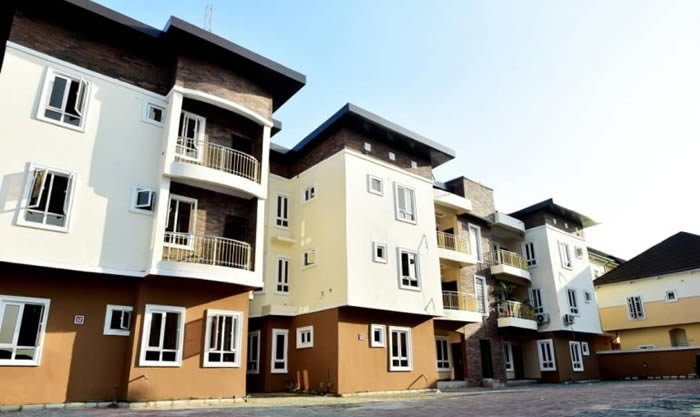
The median cost of renting a 2-bedroom apartment in Lagos has hit a new high of N900,000 per year, findings by The PUNCH have revealed.
A comprehensive evaluation of average rent across 19 different parts of Lagos showed that while a 2-bedroom apartment in the Ayobo area (one of the cheapest) of the state went as low as N400,000, rates went as high as N10m in the Ikoyi area of the state.
Median market rent represents the equidistant rent, by unit type (types of flats) as determined in the annual survey of rents for a given period.
The survey aggregates average rates in different parts of a geographical locale with a view to striking a mid-point between the highest and lowest rental rates.
On the other hand, while the median rent for a one bedroom apartment in the state stood at N500,000, the median cost for a 3-bedroom flat went as high as N1.4m.
The figure represents a 30 per cent surge, when compared to rates obtainable in 2019 before the economic aftermath of the Covid-19 pandemic.
Different parts of Lagos covered in the calculation included: Ajah, Victoria Island, Ikoyi, Lekki, Ikeja, Iyana-ipaja, Yaba, Surulere, Oshodi, Ojuelegba, Ikorodu and Ayobo.
Others were: Gbagada, Abule-egba, Agege, FESTAC, Epe Badagry and Ikotun.
The prices were sourced from the popular proptech – propertypro.ng.
In explaining the reason behind the surge in rental rates across the state, experts have blamed the current economic crunch, particularly the headline inflationary pressure, which has also penetrated the real estate sector with regard to increasing cost of construction and maintenance.
A real estate expert, Alfred Olayiwola, in an exclusive chat with our correspondent, said the cost of an average apartment in Lagos State was fast going beyond the reach of the average Lagos resident.
He said, “Given the current state of the economy, it is not affordable. That is why, recently, people are trying to move from high brow areas to these interior parts of the state because of rent. Income is not increasing, yet costs of rent keep going up. It’s really on the rent. Payment of rent is as a result of saving. if one is able to save, then you won’t have much pressure. Daily expense that is recurrent is getting higher and is taking more of people’s income. Recently, people are really finding it difficult to pay rent.
“Everything falls back on the economy. If things are being stabilised, if the prices of goods are not so high, if there is stability in the economy, then the issue of high rent will not be a thing in the first place.”
A Lagos-based realtor, Olamide Samuel, on the other hand, said the aggressive urban migration that had seen influx of people come into Lagos had significantly increased the housing deficit in the state, hence the skyrocketing prices of rent.
According to him, regardless of the fact that the economy had been volatile over the past few years, the industry had continued to witness enormous investments due to its ROI prospective. As a result, the prices had become more competitive, he said.
He said the reality was beginning to create a dichotomy between the lower class and the proletarians who had to labour to match the competitive standards being set by the avalanche of investments in the real estate sector.
Olamide said, “The economy is bad, but the thing is that mo matter the situation of the economy, people always want to invest in real estate. But the return on investment is guaranteed. The price of real estate always goes up. Right now, you find that a lot of people are investing a lot of money in property development in Lagos, and even outside Lagos in places like Mowe and the rest. Because of this, the price of real estate has gone up, because the demand is high. By the time a developer buys land for almost double of what he bought two years ago, the implication is that when he finishes building the house, the rent will be very high.




